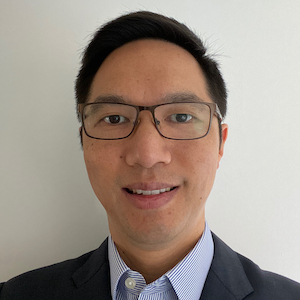
Dr. Cheung is a Consultant Nephrologist and Honorary Senior Lecturer, University of Leicester, UK. His PhD examined factors that contribute towards progressive kidney damage in IgA nephropathy (IgAN), and his current interests focus on clinical trials in this condition. He leads a number of investigator-initiated studies in collaboration with industry and academic partners, and has served as UK national chief investigator and principal investigator on multiple IgAN clinical trials. He leads specialist clinics in glomerular diseases and in vasculitis and lupus nephritis. He is a steering committee member and active member of several national working groups, including the UK IgAN rare diseases group and the UK glomerular diseases clinical studies group.
I was quite struck as a medical student when I saw a young person with a dramatic presentation of vasculitis affecting their kidneys and lungs, and it was when the nephrology team became involved and could start effective treatment that the patient started getting better. This sparked my initial interest in nephrology.
I have always been fascinated by autoimmune diseases and how the kidneys may be involved in diseases that also affect multiple organs. IgAN is really interesting, as it is a disease of the kidneys, but the primary issue occurs outside of the kidneys. The immunology behind it is fascinating.
Nephrology offers a unique and rewarding mix, where you look after acutely unwell patients and also those with chronic disease. It’s a privilege to be able to look after patients over the long-term through the course of their kidney disease — for example if they may need dialysis treatment or a kidney transplant. It’s a relationship where you are there with them through all the ups and downs.
I think the two areas are very intertwined. Many of the commercially sponsored clinical trials I am involved with as an investigator and through George Clinical are studying drugs that were underpinned by careful work and discoveries that took place at academic institutions. Equally, it would not be possible to translate these findings and bring new therapies into clinical practice by performing global multicenter clinical trials in rare diseases such as IgAN without the backing of pharmaceutical companies.
A current area of focus for me is in designing and conducting detailed investigator-initiated studies to examine the mechanisms of how novel drug treatments are working in patients. This has exciting potential to help us discover more about the underlying disease and better inform how we are going to use new treatments in the future.
I really enjoy working with George Clinical because I get an insight into clinical trials beyond my own site towards a regional and global level, as well as exposure to steering committees and input into protocol development and operational delivery. It has been a great learning opportunity. George Clinical emphasizes the importance of the science behind a clinical trial. Its senior advisory board includes some of the most respected clinical trialists within nephrology who provide input all the way through a study — right from the idea of a trial through to protocol design to its actual delivery.
The scientific leadership model is a real strength. It forms a bridge between clinical academics and commercial trial delivery. Trials receive the benefit of a ready network of investigators and national leaders who are key opinion leaders within their country. I have the perspective of being both a practicing nephrologist and a principal investigator. I think this particular point of view is valuable when communicating with sponsors and the clinical operations teams to help provide an understanding of what may be happening at a site level.
 What are the challenges for research in rare diseases such as IgA nephropathy and what has changed in research for rare diseases?
What are the challenges for research in rare diseases such as IgA nephropathy and what has changed in research for rare diseases? Rare diseases are often complex and affect very small populations. They are understood and treated by far fewer physicians. They require more innovative trial design, are often difficult to recruit to and may require novel endpoints. And funding is often difficult to find. Fortunately there has been an increased interest and desire to conduct trials and develop treatments for rare glomerular diseases such as IgA nephropathy.
A key driver for this has been the acceptance of surrogate endpoints of kidney outcomes such as proteinuria reduction or rate of change in kidney function by regulatory authorities including the US Food and Drug Administration and the European Medicines Agency for the accelerated approval of new therapies. This has provided the ability to conduct clinical trials at a much quicker rate than before, and has advanced the timeline to drug approval. We’ve recently seen two disease-specific treatments for IgAN receiving conditional approval due to these developments, with others hopefully to come soon.
This is a space where strong partnerships between academia and industry, as well as patient organizations, can expedite advances in the development, delivery and clinical approval of effective therapies.
In Leicester, we do a lot of work in collaboration with patient support groups such as the IgA Nephropathy Foundation. Early patient involvement when designing a clinical trial gives you very important insights into how acceptable a study protocol will be and helps define priorities for research. Our research group organizes an annual UK IgAN patient information day, and we post videos on YouTube, which has been great — many patients have approached us to join clinical trials after watching these.
It can be quite a task to organize all the different areas of my work. I find it all very fulfilling and rewarding. But at the end of the day, I have two young children — and I have to stop work at a certain time and turn my focus to them. Spending time with my family in the evenings and on weekends is a great way to disconnect.